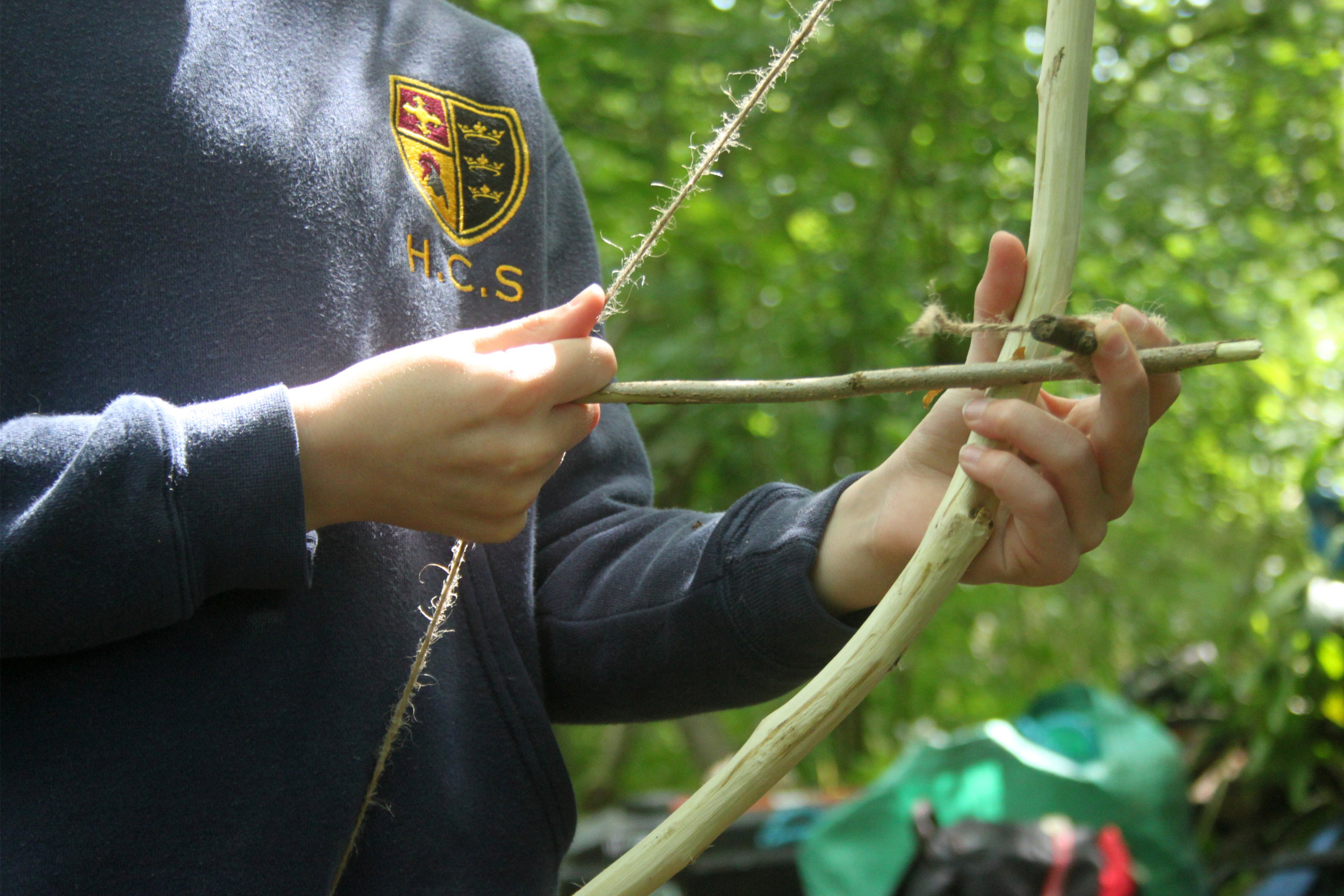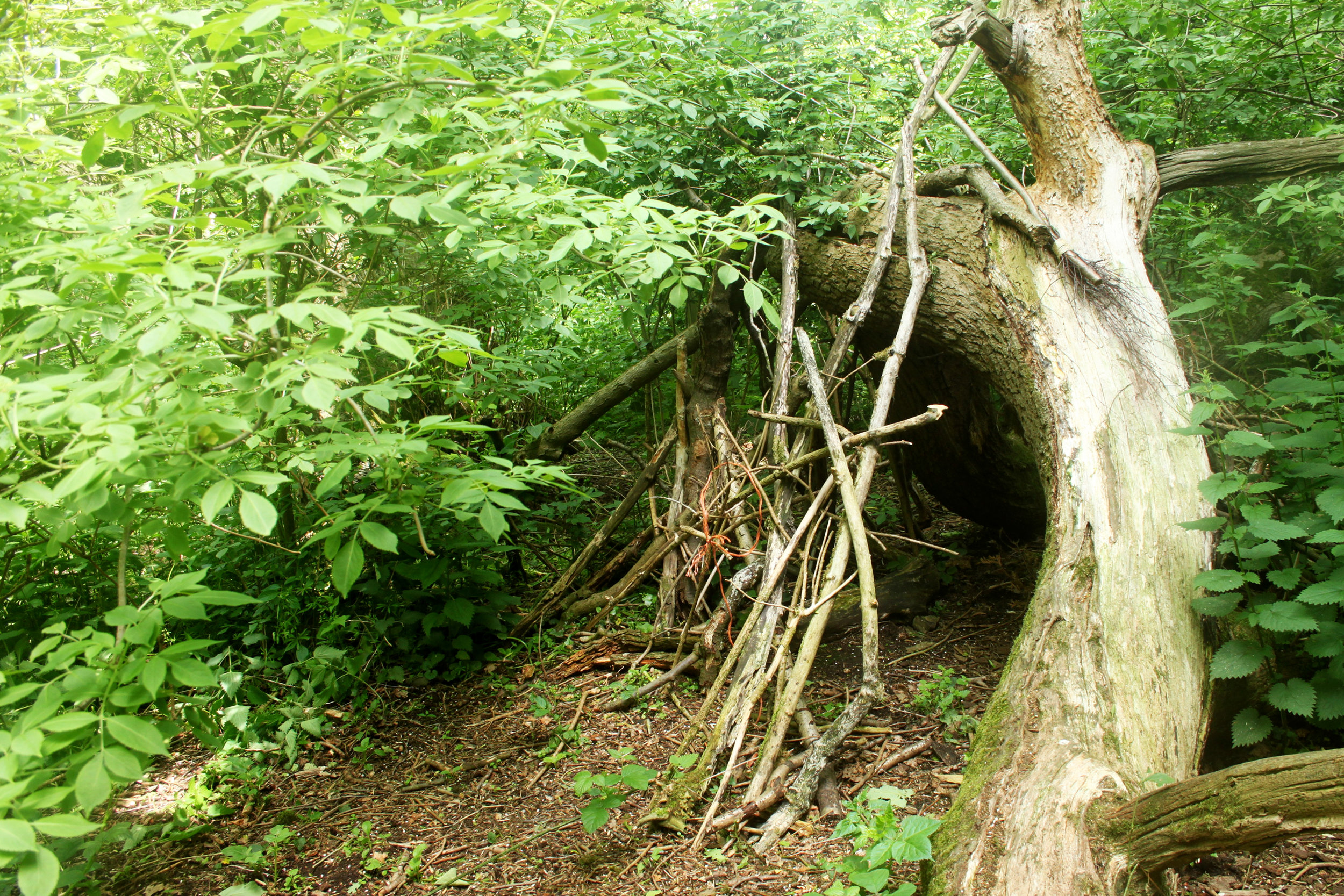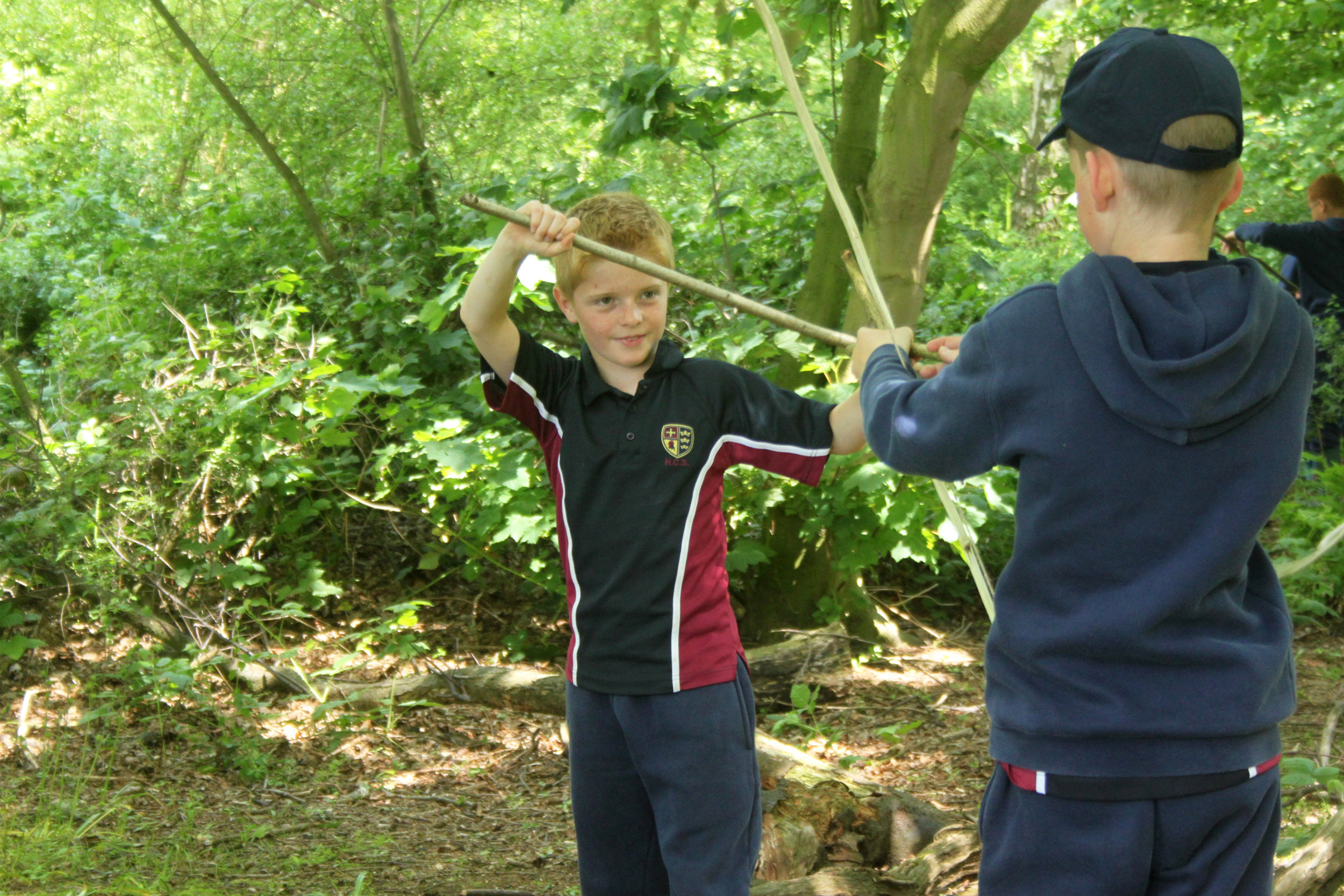WHAT IS FOREST SCHOOL?
Forest School is a term used to describe a way of working with children, young people and adults. At Forest School the learning environment is outdoors, somewhere wild. Here the emphasis is on the process of learning rather than the end product; where the participants are encouraged and supported to direct their own activities. It places the importance of the holistic development of the participant and through this encourages them to become independent learners. It recognises that the benefits from working/playing/learning in the outdoors are most apparent after a period of regular sessions.
The idea of Forest School began in Scandinavia, where culturally it is normal for children, especially pre school children to explore and play out doors, with minimum adult intervention. This was further developed in Denmark where, it was noticed that children who had attended a Forest School type setting were socially, emotionally and physically more confident when they began their academic learning. This had an overall positive affect on their overall achievements. Forest Schools offer a learning space that is accessible to all people of all ages, abilities and interests. During their time spent in at Forest School participants find that they can succeed at something, learn new skills, new ways of co-operating with others and ways to problem solve. Over a period of time, this helps to raise their self esteem and emotional resilience.
WHY HUMBER FOREST SCHOOL?
Humber Forest School is privileged to have the use of 6 acre as of ancient woodland at Meaux Abbey Farm. This is a magical place, where the peace and tranquility of such an established wood provides the very best environment for reconnecting with and exploring nature. Once in these woods it is possible to believe that anything can happen. Given time and space participants are able to safely push their own boundaries, follow their own agendas and grow in confidence and self esteem. Here they can face difficulties, and encounter frustrations in a supportive environment. In time this enables them to overcome adversity and grow in resilience to face other challenges.
Practitioners are trained to facilitate this process through appropriate intervention styles which supports, but not controls the individual’s self chosen play and exploration. This low intervention style allows participants to become fully immersed in what they are doing, often to the exclusion of all else around them, and in this state they are able fully develop, emotionally, physically or socially, at the level and rate they are biologically ready for. This is enabled through a high adult/child ratio to support and regular visits enabling children to become more confident and capable.




